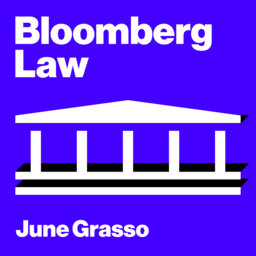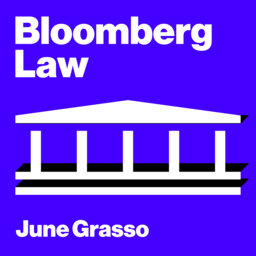SCOTUS Skeptical of Jan 6 Charge & Trump Trial Day 2
Former federal prosecutor Jessica Roth, a professor at Cardozo Law School, discusses the Supreme Court oral arguments over a criminal charge brought against hundreds of Jan. 6 defendants including Donald Trump. Former federal prosecutor Michael Weinstein, a partner at Cole Schotz, discusses the second day of jury selection in the hush money trial of Trump . June Grasso hosts.
 Bloomberg Law
Bloomberg Law


